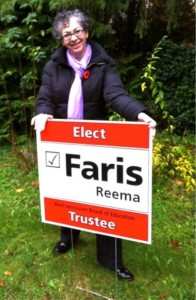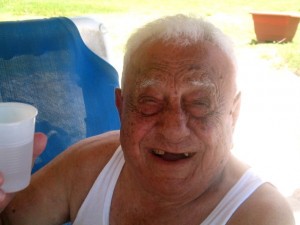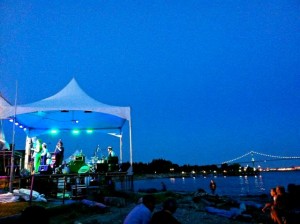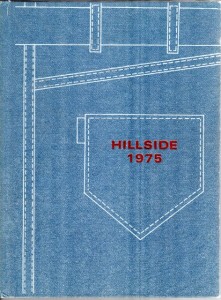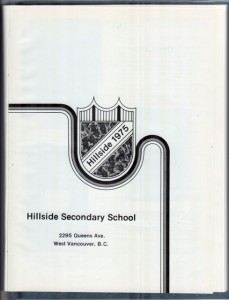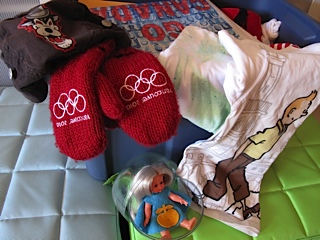Year One Retrospective
A year ago, I was elected as a Trustee to the West Vancouver Board of Education and it’s been an honour to work on behalf of this community. I’ve lived most of my life here, I’m a graduate of the school district in which I now play a role, and I’m fortunate I’m able to raise my child here.
As a public education community, we’re very lucky in West Vancouver. We have a great administrative team, we have inspiring leadership from our Superintendent, we have incredible staff, we have a caring Board, and we have a cadre of educators who are diligent, dedicated, and determined to deliver the highest quality teaching and learning.
We’re also favoured in that our community highly values education and families here generally have the means to ensure the best for their children. And yet, even with all these advantages, I see any number of troubling issues which appear to characterize the public education system in British Columbia.
And so, when I’m asked about my experience as a Trustee, my inclination is to say that the system is more complex and complicated than I realized despite having been an active parent-volunteer for five years before choosing to run for office.
Why?
In part, I think, because there are many different interpretations of the generally agreed upon underlying principle which I see as “the best interest of the child”.
Is the core purpose of education the success of the individual child or is it the betterment of society? Do parents know what’s best for their child or do teachers? Is an educator an autonomous professional or an expert member of a team?
I’m sure any one of us could generate an endless list of questions on the big picture of education, but then there are the practicalities. How is the provincial government able to show that funding per pupil is at an all time high while school districts have to nip, tuck, or cut programs and services in order to balance budgets? Given that 80% of a school district’s budget is consumed by salaries and benefits, how can innovative projects be implemented when resources are so constrained? How can infrastructure be maintained and new capital projects be contemplated with no additional funding?
Despite the seemingly intractable challenges, there’s no doubt in my mind that we have to do everything we can to foster dialogue on this issue. That education needs to be made the highest priority in this province, that we have to find a way to work collaboratively to make our strong system better.
The reason is simple. Education is the path to a more just and more equitable world.
And while it may be difficult to hold on to this truth given the evidence of the harm humans continue to do to the earth and to each other, it is why I remain committed to doing the best I can, for public education, in the remaining two years of my term.
Remembering
My maternal grandfather, Mr. Mike as he was known, passed away in 2008 at the age of 104. Yesterday, October 9th, would have been his birthday. These are the words I spoke at his funeral four years ago.
“As you can see, I’ve written a book. But, before I start, let me say one thing. Looking around at this incredible gathering, the one person I know who’s having the time of his life, wherever he may be, is Michael Khaleel George Azan.
My name is Reema and I’m Mr. Mike’s granddaughter. My mother is Y., Miss U as she’s known in Spaldings.
I hope, as C. and I speak, you’ll hear the echo of the many voices speaking with us today, the voices of all Mr. Mike’s grandchildren and great-grandchildren.
When I asked my 7-year old son what he remembers most about Grandpa Mike, he answered: “He was very old and he sat a lot.”
I know how lucky my son is to have known his great-grandfather well enough to have memories of him.
But I’m sad he didn’t know Mr. Mike the way my cousins and I did.
Mr. Mike, until recently, was not a guy who sat a lot: he loved to move, he was loud, he was vivacious, passionate, strong, loud, he loved to travel, he was loving, full of energy, brimming with confidence, and … loud.
Grandpa Mike was a force of nature and it seems only fitting that we remember him today, September 10th, which I’ve read is the peak day of hurricane season.
He was a man of the earth. Born in Lebanon and living in poverty, he once told me he “walked four year barefooted.” His footprints are embedded in the very soil of our world: in Europe as he made his way to his new island home in 1922, in Jamaica – his home for 86 years, or in Canada and the United States where he visited family.
He was a man who enjoyed the bounty of the earth. If there ever was a man who gloried in the pleasure of food – and was deeply thankful for every mouthful – it was Mr. Mike.
In the morning, he would have a glass of water, a cup of hot strong coffee and two bananas. And that was before breakfast. My cousin D. remembers him in the kitchen, in his white undershirt, mixing Fatoosh, a Lebanese salad, in a huge aluminum bowl to feed members of the family who would gather around the tables set end to end to accommodate everyone.
On Friday nights, Uncle V.’s family would travel up to Spaldings for dinner. V.’s son remembers how Grandpa Mike made him feel special by making sure that even as a child he was included in the conversation.
It was that ability to make people feel special that made Grandpa Mike such an expert salesman, or as my cousin G. says, “he could sell water to a fish in a pond”.
No one who knew Mr. Mike could deny that he had fire in him. You know that if there was music, it wouldn’t be long before he’d get up to dance.
At his 100th birthday celebration, my sister remembers how his eyes twinkled as he watched a belly dancer perform. When he tried to join her, his children urged him to remain seated. He shrugged them off, got up to dance, twirling his white handkerchief around and around.
Mr. Mike loved his family fiercely, and he had a temper, one that chased many a customer out of his store.
I remember visiting Jamaica as a young girl of 11 and being utterly fascinated by the store. I remember it as a dim cavern of treasures: men’s fabrics, women’s fabrics, cotton panties, housewares, lace, thread, mixing bowls, brooms, ribbon, and buttons.
My favourite part of the store was the mezzanine where there were boxes and boxes of shoes, some easily twenty years old.
I remember the magic of the place: it was a dragon’s den and Mr. Mike was the fire-breathing guardian. He used his voice to bellow his disapproval, and my cousin D. remembers that he also used brooms, pots and pans, and even shoes which he threw down the street after the people running away.
Mr. Mike was so physically strong. My cousin L. remembers his “hugs were so tight you thought he broke a rib and the kisses that were so hard, I swore his beard cut my face open.”
He was also a man of beliefs. The essence of his philosophy, as described by my cousin S., was his love of God, his love of family, and his love of friends.
I believe that part of Mr. Mike’s longevity was his innate curiosity about the world and an appreciation for all the things in it. This is a man who had no formal learning, but he was always asking questions.
And he never seemed to forget a thing. I once asked him to tell me about Spaldings when he first arrived. According to the notes I made, here’s some of what he told me: “Eggs was 6 pence a dozen, meat was 6 pence a pound. A big loaf of bread was 9 pence. 9 pence was money.”
Earth. Fire. Air. These, according to ancient philosophers, are considered the principal elements of nature along with water. I like to think of life as a river. You’ve got to jump in and go with the flow.
Most of us are tempted to reach out and grab a branch or a log to get to safety. Not Mr. Mike.
I believe he was fully immersed in the river of life and trusted the current to carry him.
The word hero is thrown around a lot in our world. But sometimes I think the most extraordinary people amongst us, the true heroes, are those like Mr. Mike, who live in contentment, who take joy in their family and friends, and who work on behalf of their community. Who ride the ups and downs of life, who take the good with the bad, and who smile every day.
Mr. Mike used his voice to share his stories with all of us. Sadly, we’ve lost that voice. He didn’t have the ability to capture those stories with words on a page, but he had pictures. He was obsessive about pictures. I think that’s because they were his diary, his journal, his testament. He could look at them and say: “I’m a good man. I’ve lived a good life. These are the ones I love and this is my life’s work.”
We are his life’s work: his children, his grandchildren, his great-grandchildren. And to him we were – we are – masterpieces. Flaws and all. And, if we’re smart enough, and if we love enough, as we go about our daily lives, we will hear the echo of his footsteps, the echo of his voice, and we will feel the echo of his arms around us, and the echo of his heartbeat, here, inside each and every one of us.”
Is Mean Really What It Takes?
I’m a Gleek, a fan of the television show Glee. It first aired in 2009 and although I fell off as a spectator last year, I’ve picked up the habit again for Season 4.
Britney 2.0, the most recent episode, aired last Thursday. Incorporating music by Britney Spears, for the second time in the show’s history, and tracing the development of a key character, the episode also alluded to the real life trauma, the very real events in the public roller coaster ride of Ms. Spears’s celebrity existence.
But that’s not what I want to talk about.
Another story line this year follows Rachel who has moved to New York to attend a prestigious performing arts academy in the Big Apple.
Rachel’s dance teacher is Cassandra July, played brilliantly by actor Kate Hudson. With a predictable coulda-been-a-star background, Cassandra’s teaching style is abrasive and vindictive. To move the plot along, as you might expect, her scapegoat is Rachel, the young woman from the small town with the big dreams of making it on Broadway.
At one point in the Britney 2.0 episode, Cassandra says, “I pick on my students because I want them to be ready for that.” That being the difficult and rejection-filled life of being a musical theatre professional.
The show reflects the mindset that what doesn’t break you makes you stronger. I find this sentiment abhorrent.
Why?
Because it justifies meanness. It rationalizes the abuse of power. It embodies a stereotype of the cruel authority figure whose behaviour is sanctioned as being for one’s own good.
There may be individuals who thrive under such a system and there are those who are motivated by an I’ll-show-’em bravado. Most of us, I conjecture, wilt if we’re starved of encouragement and trampled under the weight of another person’s ego.
Many of us likely carry such hurts already.
Being mean is not the same as being constructive. Being mean is often destructive. And there can be nothing worse than when that meanness comes from those whom we admire whether our parents, our siblings, our family members, our friends, our colleagues, our coaches, our mentors, or our teachers.
Education is not coercion nor compulsion. Learning does not come about when you harp on weaknesses or failures or transgressions.
While I obviously cannot say how the season of Glee will unfold, I’ve watched enough American television and enough American films to predict that at some point Rachel will thank Cassandra July for challenging her, for being so mean.
Rachel will acknowledge that Cassandra made her dig deep, overcome crushing criticism — if not outright belittlement– and helped her take those crucial steps along that yellow brick road to making her dreams come true.
This portrayal perpetuates a stereotype of what it takes to be successful, but even more damaging in my mind is the stereotype it perpetuates of the tough-love teacher.
And that’s a stereotype it’s time for us to break even if it’s only on television.
Opening Day 2012 And A 1974 Flashback
Last Thursday, I had the pleasure of hearing Dr. Jennifer James speak at the Opening Day celebration for our school district.
Held at West Vancouver’s Kay Meek Theatre, the event drew over 500 teachers, administrators, staff, trustees, partner-representatives, and parent-representatives to join in honouring 20-year employees, to hear from the Board Chair and the Superintendent, to learn from a distinguished speaker, and to be moved — in my case to tears — by a slideshow presentation with highlights from the past year.
In her presentation, Dr. James masterfully outlined the cultural shifts we’re experiencing and the challenges they present particularly to educators. In relating her vision, her experience, and her understanding, Dr. James also shared details of personal issues she’s contending with today and some she had to overcome as a child.
As the theatre emptied and the exuberant buzz faded, I thanked Dr. James and commended her on being so candid about her family life. “Well,” she said after a pause, “education is personal.”
And it is.
Why?
Because our educational experiences stay with us, shape us, and guide us as we negotiate our daily lives, our relationships, and our careers. For Dr. James, her education included interactions with a Grade 4 teacher she “hated” and a high school teacher she adored. The former dismissed her, penalized her, and undercut her self-esteem. The latter noticed her, cared about her, and took action to ensure that she made it to college despite her difficult family situation.
Her story inspired me to reflect on one of my own.
It was 1974 and we’d just settled in West Vancouver after moving back to Canada from Lebanon.
I knew no one.
I was moving from an all-girls school where we wore uniforms every day to a mixed gender school where student outfits tended mostly to jeans sporting gaping holes.
On the first day of Grade 8, I missed the bus.
I snagged a ride from my father after traipsing back home.
Having reached Hillside Secondary, I made my way into a buzzing school gym of 1,200 students arrayed along the bleachers.
Darting curious glances here and there, I sat through the roll call which ended without my name being called.
So after arriving late, after the anxiety of missing the bus, after feeling as if I’d never find my way, I was escorted to Mrs. Haagen’s classroom, Division 82.
And as the last one in, in my plaid-skirted dress with white knee high socks and black patent shoes, I was awarded an undesirable front row seat inspiring a chorus of “A-reema, a-reema, a-rrrreeemmma” from the boys in the back which would haunt me as the year progressed.
It sucked and I believe the ramifications are with me still.
But it’s important to share our stories, positive or negative, because education is personal.
And to all those students facing their first day of school this week, I wish you the very best in your personal journey and, above all, I wish you kindness.
Because as Dr. James also said, education is at the core of civilization and the heart of that is kindness.
Keepsakes and Memories
“And the seasons they go ’round and ’round
And the painted ponies go up and down
We’re captive on the carousel of time
We can’t return we can only look behind
From where we came
And go round and round and round
In the circle game”Joni Mitchell
A T-shirt decorated at a friend’s birthday party. A Tintin T-shirt bought in Aix-en-Provence almost four years ago. A pair of Vancouver 2010 red mittens. A hat from our first Disneyland trip embroidered with his name.
These were the four items, after a reorganization of his room and clothes closet, that were selected for deposit in my son’s memory box. A blue plastic bin which is home to other treasures including a few items which he wore as an infant and breastfeeding charts which I’m sure he’ll prize — or not — when he’s twenty.
I’ve learned to be careful with what we save knowing that the instinct to keep it all is a sure path to clutter-mania and a heaviness of spirit which comes from the emotional trap of not being able to let things go. Even so, my ability to avoid amassing keepsakes, which has improved over time, remains variable.
Despite my growing awareness and diligence around clutter (belied by the mountain of memorabilia and discarded items in our storage room – picture not included!), I have safeguarded this box for the first decade of my son’s life because I believe connections to our past are important. While the collection I’ve begun on his behalf may be small, it dwarfs what has been preserved for me from my childhood.
Why?
We moved a lot. I was born in Montreal and by the time I was twelve, we’d lived in Kuwait, Calgary, and Lebanon with other smaller stops in between. I think my mother, early in her married life, learned to keep things light. Making transcontinental, transatlantic moves economically forty to fifty years ago was not conducive to carrying a lot of “stuff” around.
If you look at the accompanying photo you’ll spot a small doll whose blue dress sports a yellow apple. That is it. This is not the only, but it is the primary keepsake from my childhood. It was given to me by classmates at school when they heard I’d be leaving Lebanon and returning to Canada. I can picture my friends from that time, I even remember a few names, and I can always look at photos of them in the school yearbooks I have. ButI don’t know where they are today or what their lives may be like. A 15-year civil war in Lebanon, an era before instant electronic communication, and the need to adapt to a new culture, a new society, a new school, and new friends intervened, all playing a role in building distance between them and me.
And so four items added to a blue plastic bin — a couple more boxes of school work and early artwork — may not seem like much for my son but it’s enough.
Because it’s not the stuff you save but the memories you never forget which are your greatest treasures.
